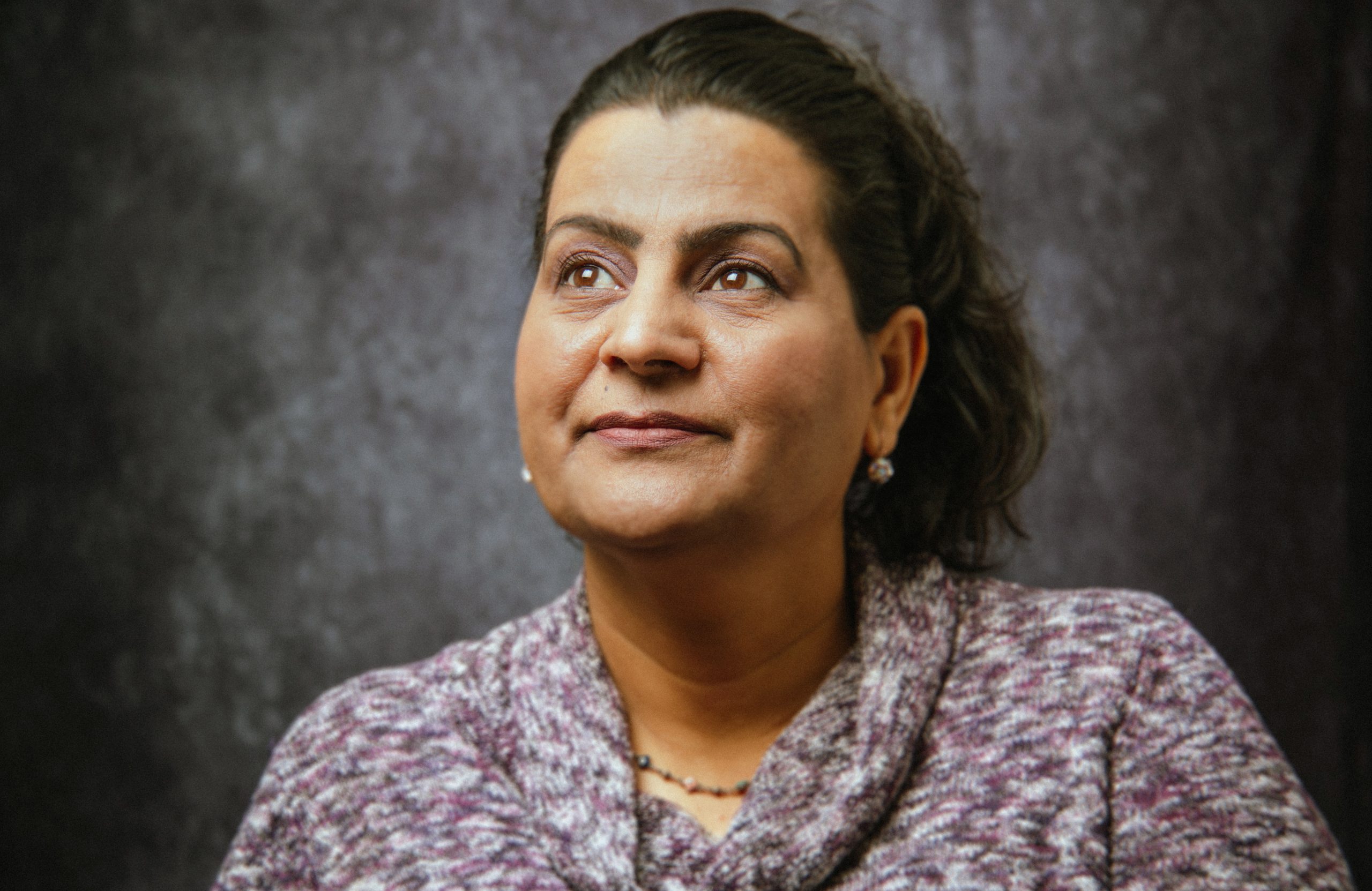By Karen Kelly
Photos by Bryan Gagnon
Farida Nekzad was always committed to staying in her home country of Afghanistan. Despite the dangers she faced as a woman journalist and an advocate for human rights; despite the many opportunities she had to leave as she visited more than 40 countries around the world; she always returned home…until now.
On August 15, 2021, as the city of Kabul fell to the Taliban, Nekzad and her 12-year-old daughter navigated familiar streets that were now a war zone. Thanks to Nekzad’s international contacts, they eventually boarded a plane out of the country with only a few possessions. They were joined by her younger brother-in-law, but left behind her husband, mother and siblings as well as work colleagues and school friends.
A few months later, Nekzad was invited to the School of Journalism and Communication as a journalist-in-residence with support from Carleton University’s president and provost, the dean of the Faculty of Public and Global Affairs, the Scholars at Risk committee, and the journalism program.
“I never imagined for one minute that I would leave,” shares Nekzad, sitting in an office at Carleton University. “I received awards from different countries for my work in human rights, but the awards didn’t belong to me. They belonged to the women there, so I always went back. [That support] gave us the courage to do more than before.”
Nekzad won numerous awards, including the International Women’s Media Foundation Courage in Journalism Award and the International Press Freedom Award from the Committee to Protect Journalists, which is given to journalists “who show courage in defending press freedom in the face of attacks, threats or imprisonment.” She also won the Canadian Journalists for Free Expression (CJFE) award.
As a freelancer for Western news outlets for more than two decades, Nekzad was often the only woman covering major events in Afghanistan, especially in dangerous regions. She was the chair of the Media Election Commission of Afghanistan and, after a stint in Germany, returned to create the Center for the Protection of Afghan Women Journalists in 2017 with support from Reporters Without Borders.
After facing personal threats for her work, Nekzad went on to train about 2,000 journalists in investigative journalism, reporting on the environment, elections, and human rights as well as personal safety and security. She published a handbook on safety guidelines for women journalists, created a charter, and launched a campaign to ban harassment and discrimination against these journalists in 25 Afghan provinces.
But as the Taliban moved in last summer, Nekzad was forced to shut the Center for the Protection of Afghan Women Journalists and its website down.
“It wasn’t safe because there were videos and documentaries of the women working in different provinces. One staff member was killed in January 2021,” says Nekzad. “Now I am advocating for the evacuation of my staff and journalists.”

Home is a World Away
Nekzad and her daughter have settled in Canada, thanks to the help of groups such as Canadian Connections. But Nekzad’s heart and mind remain with her loved ones in Afghanistan. Slowly, day by day, the rights of women are being stripped away. They are now required to wear a hijab and they cannot travel or visit a doctor or lawyer without a male relative.
“My younger sister—also a journalist—recently took a taxi to a pharmacy to get medicine and she was stopped by the Taliban. They beat the taxi driver for taking a woman passenger without a male relative and then slapped my mother across the face. You could see the imprint of the soldier’s hand on her cheek. It is a nightmare.”
Nekzad is also living that nightmare, through phone calls from family members and videos of the Taliban ransacking apartments in search of personal documents and making arrests. But for some reason, she says, the international media and advocacy groups have gone silent.
“There is a human crisis. Why is the international community quiet?” asks Nekzad. “I heard a journalist say recently that the fighting has stopped in Afghanistan and it’s now peaceful. I couldn’t believe it. They are killing people every day. Why are they leaving us?”
That loss of international support motivates Nekzad to keep speaking out—in interviews, on panels, to classes of Carleton students.
“Now is the time for all activists, human rights organizations, and the United Nations to stand with Afghan women and support them and their freedom of expression,” implores Nekzad. “I hope to one day witness peace and stability in Afghanistan and to find a chance to continue my work and activities.”
While Nekzad longs to return to her home and family, she is grateful for the opportunity to be in Canada, and hopes her husband can join her soon. She reminds herself of the advice she received from international colleagues before she left: “You have to be safe because you have to be the voice of Afghan women.”
Tuesday, March 8, 2022 in Featured, FPA Voices, School of Journalism and Communication
Share: Twitter, Facebook



